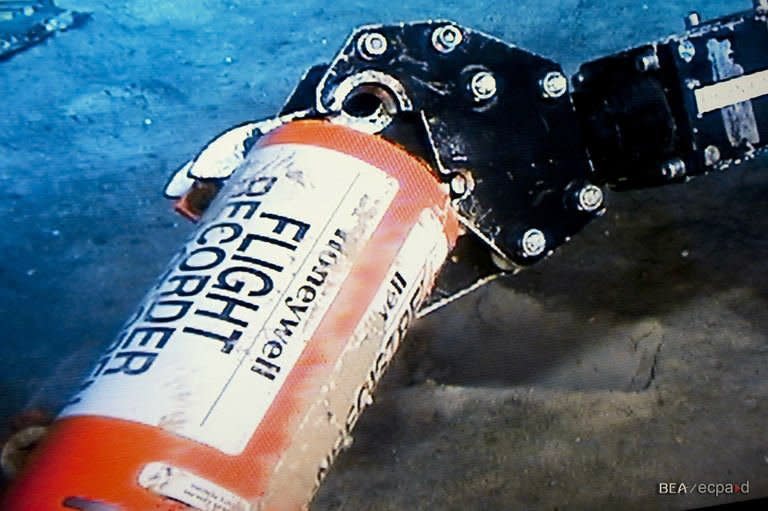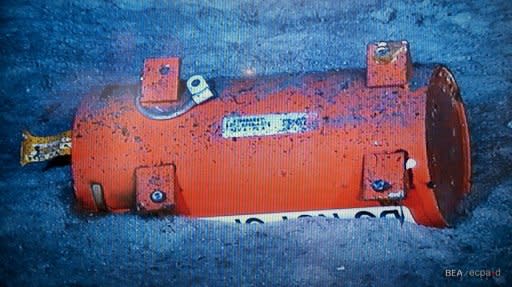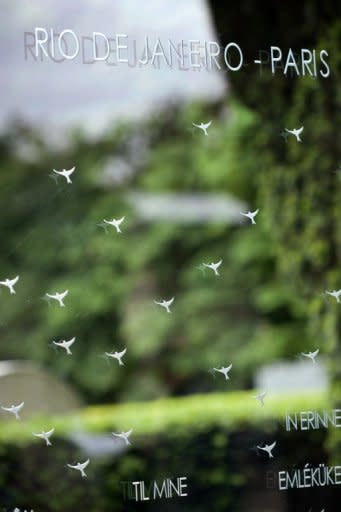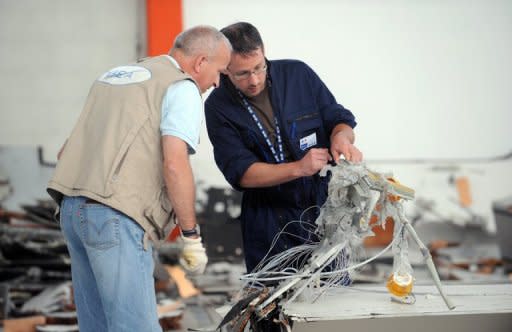Air France jet black box recovered: investigators
Search teams have retrieved one of two black box flight recorders of an Air France plane which crashed into the Atlantic in 2009 while flying from Rio to Paris, killing 228 people, French investigators said. The device was the crucial memory unit from a flight data recorder and was recovered at 1000 GMT Sunday, France's Bureau of Investigation and Analysis (BEA) said in a statement. It was "in good physical condition" after having been moved by a Remora 6000 ROV (robot submarine) on board the Ile de Sein ship. The find could be a breakthrough in the investigation into the disaster, as the box could hold crucial data that would enable BEA investigators to determine the cause of the crash. "Our experts will tell us if there's hope of reading the data," BEA director Jean-Paul Troadec told AFP. " If the data can be used it will allow the enquiry to make headway because the FDR (flight data recorder) records the altitude, speed, and the various positions of the rudder," Troadec added. The device was expected to arrive at BEA offices within eight to 10 days, to allow for the search of the Cockpit Voice Recorder (CFR), so both can be taken back to France. "If we can read the first data, that would be a great step forward, but without the second black box essential data will be missing: the way the pilots reacted, the reasons they took one decision or another during the emergency," said Troadec. A spokesman for relatives of the crash victims said they were heartened by the news. "It's very, very encouraging for all the families of the victims, even if we have to remain prudent while we wait to see to what extent the recorder can be used," Jean-Baptiste Audousset, head of the AF447 Assocation, told AFP. Transport Minister Nathalie Kosciusko-Morizet said the find was a "key step" in the investigation. "It will also allow the aviation industry to draw lessons from the disaster to permanently improve airline security," she added. But families of Brazilian victims of the doomed flight said that a "neutral" country should analyze the black box. "It means a lot because all the controversy about who is responsible for the tragedy, the uncertainty about what happened, can be cleared up," Nelson Marinho, head of a Brazilian association of victims' families, told AFP. Investigators announced Wednesday that search teams had retrieved part of a black box flight recorder from the Airbus A330 -- but not the part containing the key data. BEA said the chassis that held one of the recorders had been found a day after a salvage ship began working to retrieve bodies and recently discovered wreckage using the Remora submarines. The module had broken off from the chassis, presumably at the moment the plane crashed into the water. The Airbus A330 plunged into the Atlantic en route from Rio de Janeiro to Paris on June 1, 2009. Investigators announced they had found the main wreckage in early April on the fourth and final attempt. The official cause of the disaster remains uncertain, but the crash has been partly blamed on malfunctioning speed sensors used by Airbus. Air France has been accused of not having responded quickly enough to reports that they might be faulty. Investigators and Airbus remained cautious, stressing that without the black boxes the riddle of the plane's last moments might never be solved. While, an Airbus spokesman said they had no comment to make at this stage, Airbus-KLM chief executive Pierre-Henri Gourgeon welcomed the development. "This new stage in the inquiry constitutes a great advance because it could provide supplementary information on the causes of this accident, which to this day is unexplained," he said. Alan Bouillard, the BEA official in charge of the probe, had stressed the extent of the challenge facing the team. "We will be working at a depth of 4,000 metres (13,000 feet) which complicates the recovery task enormously," he said. Air France and Airbus -- which are being probed for alleged manslaughter in connection with the crash, the deadliest in the carrier's history -- are paying the estimated $12.7 million (nine million euro) cost of the search.





